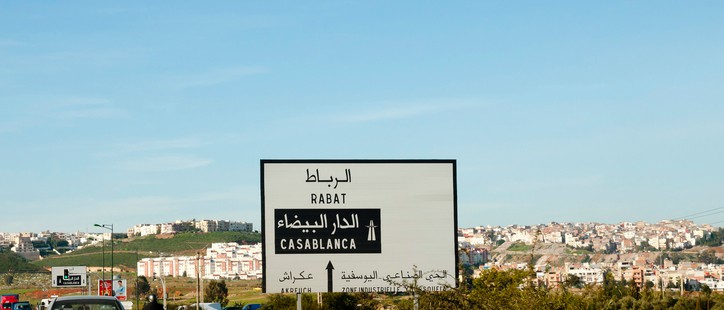Our Opinion: 2017
Power struggle is risking Morocco’s economic growth

Morocco rode out the Arab spring better than most countries in the region, and was on track to be the fastest growing MENA (Middle East North Africa) economy this year. However, a power struggle is putting Morocco’s economic and political health at risk.
Moroccans call it the ‘blockage.’ Three days after the Justice and Development Party (PJD), a moderate Islamist outfit, won the most seats in a parliamentary election on October 7th, King Muhammad VI asked its leader, Abdelilah Benkirane, to form a new government. More than four months later, he is still trying
Big protests led to constitutional reforms and a relatively free and fair election in 2011, won by the PJD. The economy shows promise and the king pushes a mild version of Islam. By the standards of the region, it is a budding success—which makes today’s mess all the more disappointing.
It had seemed that the new government would look very much like the one before it, which was led by Benkirane and included the PJD, the National Rally of Independents (RNI), the Popular Movement (MP) and the Party of Progress and Socialism (PPS)—with little to tell them apart, at least on economic policy. But last month, Benkirane broke off talks with the RNI and the MP, which came fourth and fifth in the election. The RNI, had made several demands on the PJD, such as including other parties in its coalition, which would weaken the Islamists.
Many Moroccans detect the hand of the king, who claims to stand above politics, in the manoeuvring. He and his royal court, known as makhzen, have pushed the negotiations along, but some say they are interfering. Though he was forced to cede some powers to parliament in 2011, Muhammad VI remains firmly in charge of the country. Critics accused the palace of trying to swing the election to the secularist Authenticity and Modernity Party (PAM), which came second.
Benkirane has wide support among ordinary Moroccans. His democratic legitimacy stands in contrast to that of the king, whose family has ruled Morocco for nearly four centuries. Muhammad VI is fairly popular—and is supported by Benkirane. But some analysts see a growing rivalry.
Benkirane often tries to avoid confrontation and has handed some powers back to the king. Some Moroccans, including members of his own party, would like him to be more assertive.
Others blame him for Morocco’s mixed economic record since 2011. The unemployment rate is expected to remain above 10% this year. Corruption, which the PJD promised to tackle, is still a problem. But the previous government did implement needed reforms—such as cutting subsidies and freezing government hiring. Things were looking up.
The blockage seems absurd to many Moroccans because, despite the criticism, most of the parties want to continue the policies of the previous government. “They have the same view, the same programme, the same liberal vision of the economy,” says Abdellah Tourabi, who hosts a political talk show. “No one can explain why these people are not able to meet and form a government.”
The impasse is now causing real damage. It seems unlikely that parliament will pass a budget on time, delaying the government’s reform programme. Economists are already talking about a gloomier business climate and lower investment.
On Saturday, Benkirane decided to put an end to government formation negotiations, stating that he will inform King Mohammed VI upon his return from Ghana. He explained that a viable solution to overcoming the blockage is to run the election again. He added, however, that his party prefers to avoid this solution, calling it “a tough thing” and said that what is taking place in the political scene is “surreal” and “not logical” and that something must be done rather than remaining passive about it.
Despite all the drama, the most likely outcome is that the PJD will reach a deal with the RNI to create a government that may not last long. The damage done to Morocco’s nascent democratic institutions may be more enduring. Less than 40% of voters turned out in the election, and many are now starting to lose faith in the system. Political stagnation may curtain Morocco’s economic potential.
20th February 2017
